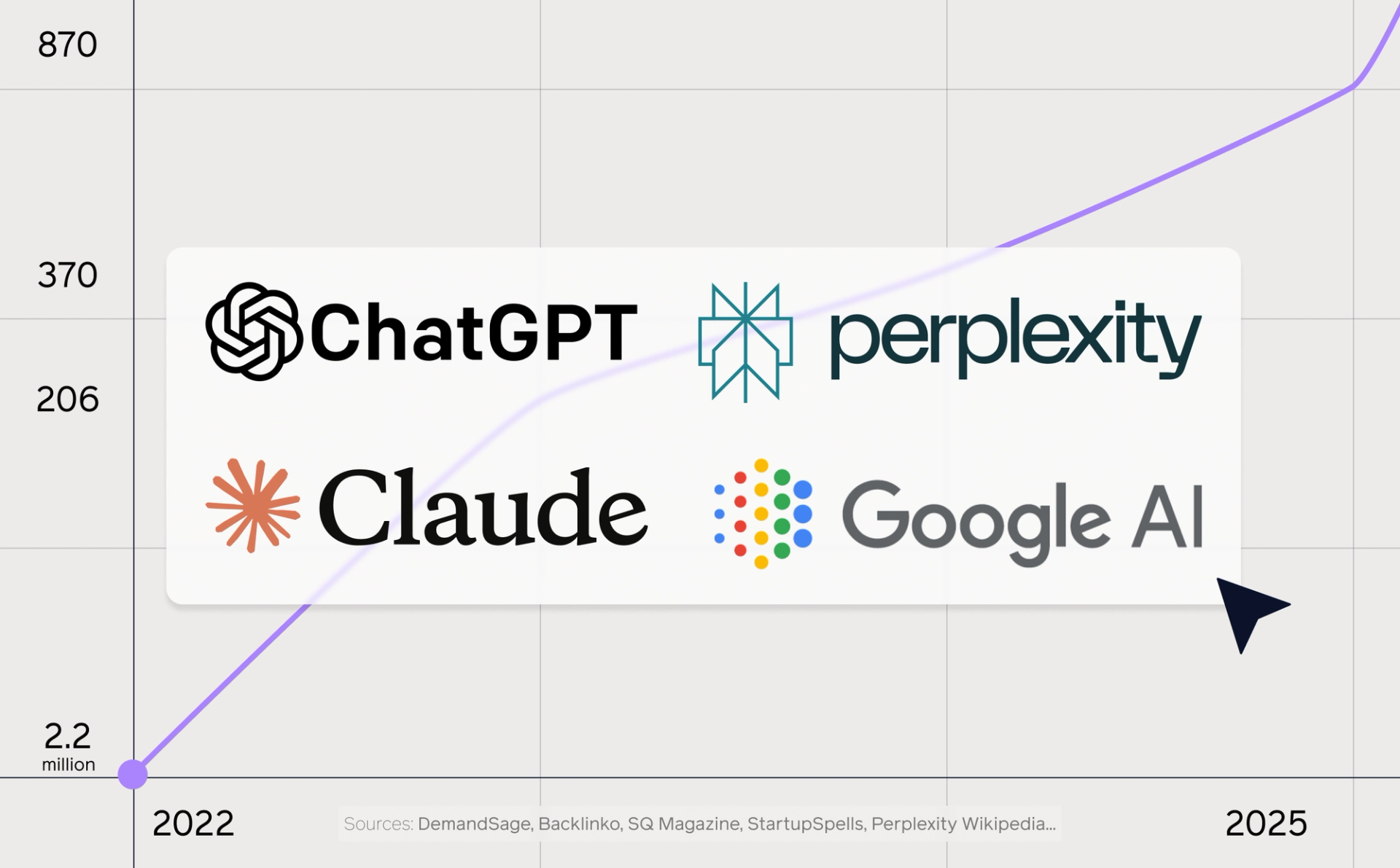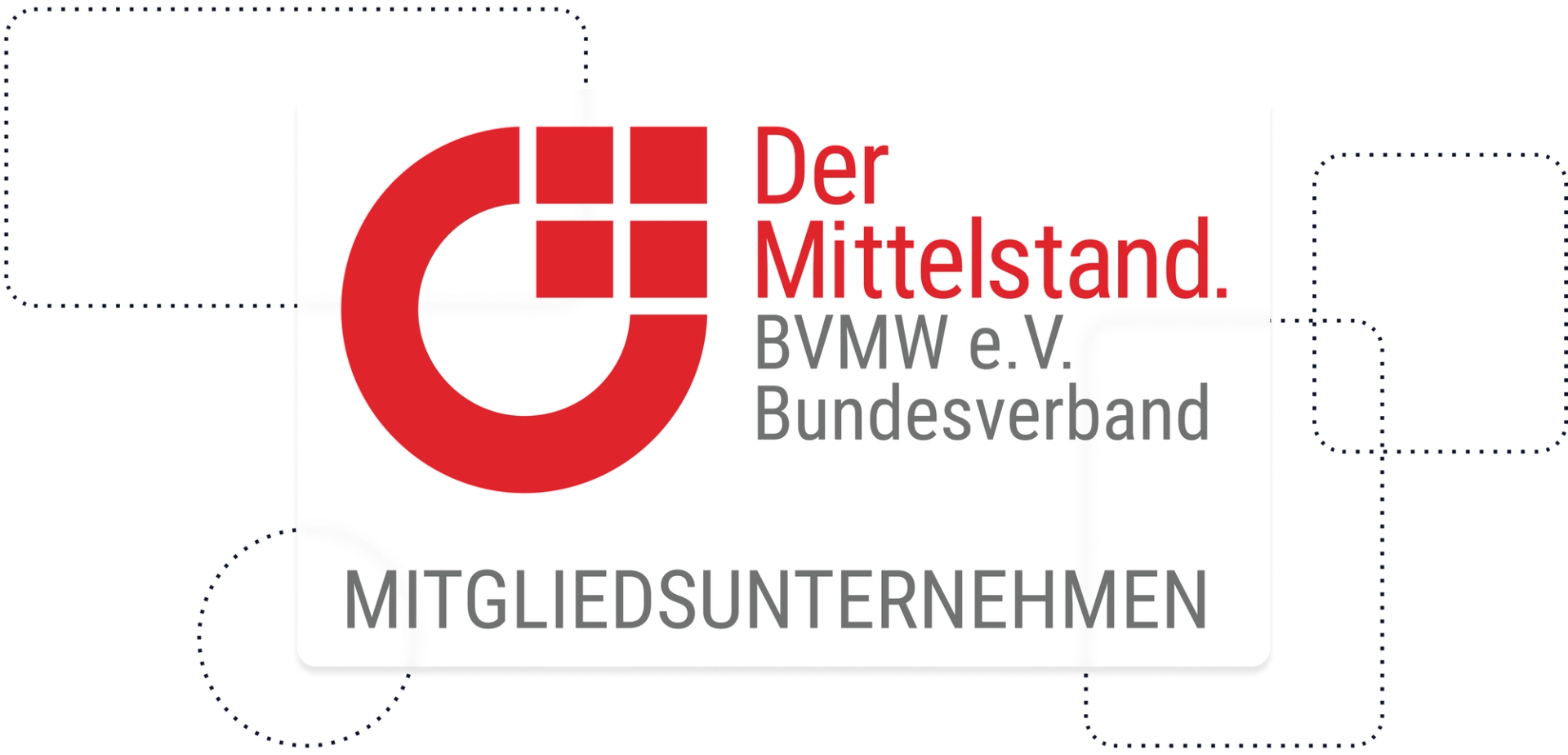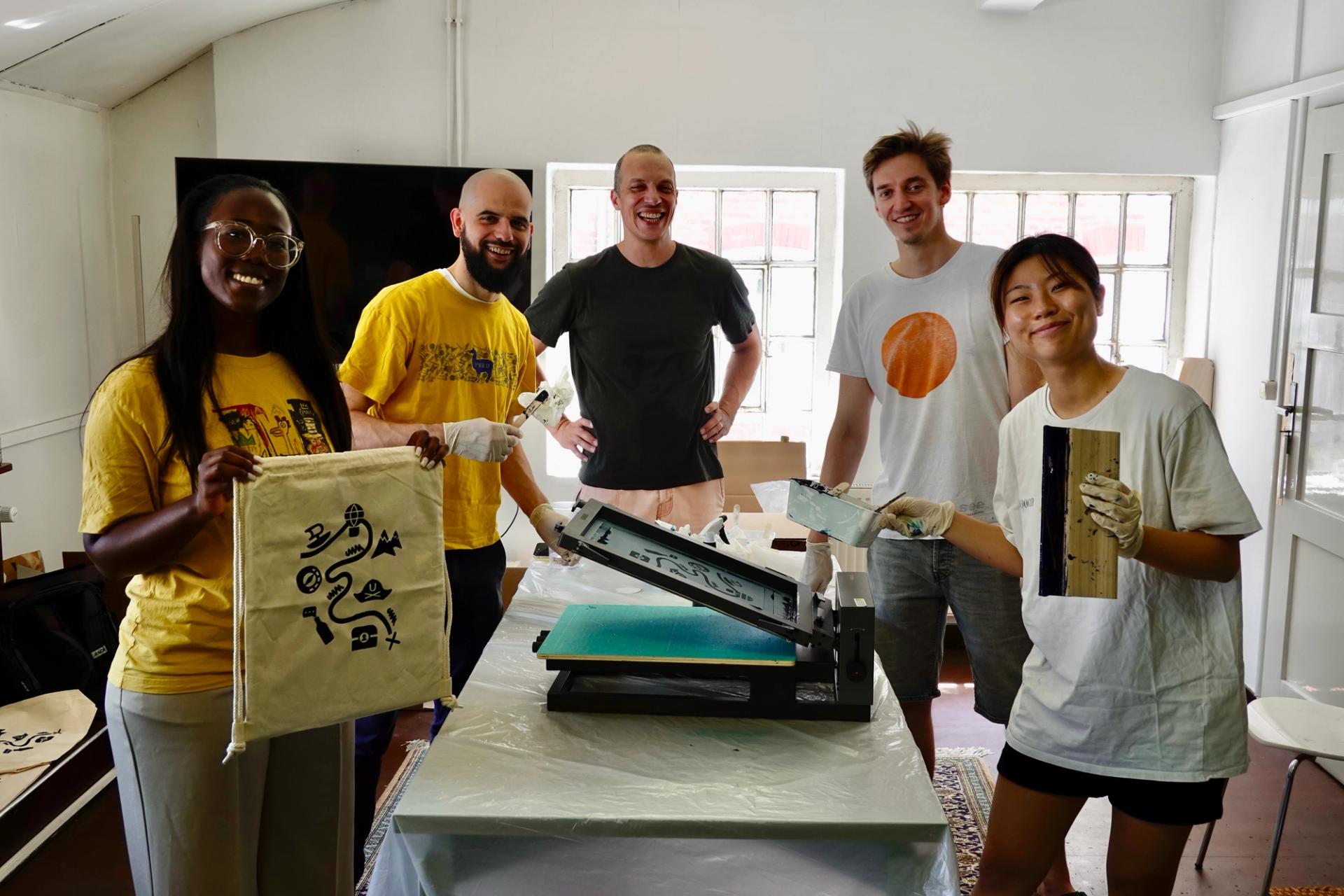
Hey there!
The second half of the year is upon us already and the summer break is slooowly coming to an end. In this edition of the Fullstack Forward we discuss changes to the online search landscape and with it the emergence of the term GEO–in the footsteps of SEO.
You can help us understand whether or not you would want your content to be collected and used by generative AI through the poll below. We would love to learn about your perspective on all of this!


AI Search on the Rise Link to this headline
The market of AI tools like ChatGPT, Claude, or Perplexity is growing rapidly . And although it seems as if traffic on “traditional” search engines like Google or Bing is not negatively impacted by this trend (quite the contrary ) there are disruptions for search engine optimization (SEO).
While chatbots are not replacing searching engines, it is carving out a whole new way to discover content. On top of that traditional search itself is changing drastically:
Google AI Overviews have been available for a huge part of online users for about a year now and as with other AI tools like ChatGPT it summarizes search results in a succinct, easy to digest paragraph. This leads to significant loss in traffic from organic search .
Why Does It Matter? Link to this headline
AI tools have a big advantage compared to traditional search: they offer a great user experience (surface answers to the core query quickly) while being less susceptible to SEO spam and keyword stuffing (irrelevant or only slightly related top results, due to gaming the algorithm). Furthermore the way AI works with text (through embeddings) means that it is often easier for users to find what they are looking for–even if not using the exact keywords commonly used for a concept or service. In consequence users can get precise answers to their questions, even if they can only loosely describe what they are looking for by paraphrasing a topic.
When users visit a website that is linked in an AI tool or response, they tend to be more valuable, i.e. they have a higher engagement rate . Which is something we’ve seen to be true on the Dinghy website statistics: users coming from AI tools tend to be invested into the topic that they came for and spend more time on the website.
For publishers this results in fewer clicks, even on top positions on the SERP (Search Engine Result Page) as described by the Wall Street Journal .
The AI responses themselves are made possible by and composed of the content from the very same websites that are now seeing a decline in traffic, which opens a legitimate discussion on content ownership, copyright and attribution. How this is handled differs a lot across each of the AI tools.
But one thing is certain: AI models are trained on publicly available information, which might as well be your website’s content. So what can we do to stay visible in the changing landscape of online search?
Cue GEO Link to this headline
For the longest time we dealt with SEO to create visibility on the internet. And while many parts of SEO still work for AI, some things change. A new term emerged to describe what is needed to get ranked and shown by AI tools: Generative Engine Optimization.
The idea is similar: how can your website’s content be served best to AI tools to increase the likelihood of being cited in an answer, which then might lead to a very qualified website visit.
Here’s a definition:
Generative Engine Optimization (GEO) is the practice of optimizing your content and online presence to appear prominently in AI-generated responses from chatbots and language models like ChatGPT, Claude, or Perplexity. Unlike traditional SEO that focuses on ranking in search engine results pages, GEO aims to make your content the source that AI tools reference and cite when users ask questions related to your expertise or business.
Marketing for your Content on LLMs Link to this headline
Now it’s important to point out that the term “GEO” is still very new and just started to become an active practice. AI tools evolve quickly and thus we’ll keep a close eye on the topic going forward but we would like to use the chance to share the most comprehensive analysis we have seen to date.

Pietro Mingotti, our friend and SEO and technical marketing expert, just finished and shared his in-depth research on the topic of LLMs search engine marketing.
In his research he goes deep into how LLMs work and explains thoroughly why LLM search engine marketing is something entirely different than for search engines like Google and Bing as we know them.
Pietro summarized the key points to understand when thinking about how GEO is different from SEO like so:
- You can’t rank on ChatGPT like on Google Search. LLMs don’t use ranking systems .
- LLMs rely on static training data, not live crawling, if not for single prompts.
- Attribution is inconsistent; your content may be used without citation.
- Authority signals like backlinks or keywords don’t drive visibility for LLMs.
You can find the blog post introducing the whitepaper here .
Implications for Your Company Link to this headline
The very obvious first question you need to answer is if you want your content to be available for AI training. It’s technically possible to either:
- prevent AI models from accessing your content or
- offer your content to AI models in a way that makes it easy (and likely) for them to learn from and use it.
While there are no guarantees for either option to work out, it seems as if certain AI crawlers try to circumvent measures to block them.
This decision is also a tough decision to take. Up until now traffic from bots was either good (search engine crawlers) or bad (spam bots, bots looking for competitive data), i.e. bots either drove traffic or were hurting your website. With the rise of AI training bots things are much more nuanced.
There are other, more interesting insights to take into account though. Apparently ChatGPT is more likely to link to business and service offerings than any other content category. This is an opportunity to position your company in the market.
Moreover, the more AI is used in chatbots and/or voice interfaces, the more likely it is that your (visual) brand will never be seen. The implication here is, that the messaging and tone of voice of your company’s brand should be designed explicitly for use in text-only environments.
What Do You Think? Link to this headline
We are exploring ways to do both, deliver content to and block content from AI crawlers and we would love to get your perspective on all of this:
Do you want your website's content to be accessible for Ai search engines? Link to this headline
If you have any questions feel free to get in touch with us. We’d love to chat about all of this with you!
What we’ve been up to recently Link to this headline
German Mittelstand here we come Link to this headline

Since almost a year we’re an active member of BVMW—a professional community for midsized companies in Germany.
We took this step because we’ve been online too much! We’re a remote agency and as such we know how important it is to bring together the team regularly, to refresh our human bond. And the same applies to our professional relationships with our customers. To every relationship really.
As we all know and still experience today the landscape of office work changed during and after Covid19. People suddenly had to work from home if they wanted to or not, and in many cases that change in work-style went totally unmanaged. People were left alone with the challenge.
A few years after the lockdowns now, we realize that our remote setting lead to a gap in our professional relationships to customers and companies who work offline primarily. Personal relationships are important for trust building and sometimes these are hard to establish in online-only setups.
Attending meet-ups and conferences organized by the lovely team of BVMW Frankfurt am Main is a great way for us to get out there, meet with people in real life and learn about their current challenges.
Recent Blog Articles for You
Humans for humans Link to this headline
The same is true for the internal team at Dinghy. As a studio working in a remote setup for most of the time, we know how valuable in-person meetings are, to stay in sync and to keep our group of experts working together successfully.

It was HOT outside when we met in our Frankfurt office for a non-digital team building workshop. Thankfully, we had an A/C unit installed last minute which allowed us to go ahead with a hands-on screen printing action as well as strategy sessions.
We reflected on our expertise and the impact of current developments on our work and our clients’ businesses. Of course, a prominent topic right now is artificial intelligence which we are observing with both, great curiosity and critical eyes. Some AI tools streamline aspects of our daily work already. We invest considerable amount of our R&D time to test what works and where AI is not helpful. And one thing is clear: human empathy, reading between the lines and understanding what our clients need is not something any AI can do.
This newsletter is written by human hand entirely, because communication is the hardest challenge humanity has to deal with. And at the cost of typos we’re not leaving that to statistical probability ;)
